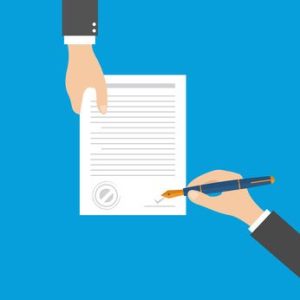
Listening Out the Individuals Involved
Those who are involved in the licensing agreement are considered to be parties. Each side, the licensee and licenser both have an obligation to the document that they will be signing. This obligation is to provide the correct information and desired outcome for the intended agreement. In many licensing agreements, there are only two parties, this could be an individual and a company, two individuals, or two companies. However, when a company is involved, chances are so are their lawyers.
Both parties should have their information listed out for future reference and in case there are issues with the original agreement. The information below should be collected before filing the paperwork, or attempting to have it processed.
Names: The name of both parties, each on a separate section in the agreement. This is important as it helps to remember and identify who the agreement is between.
Address: The address of each party is also important as documents and future mailings regarding the agreement can be easily sent out.
Principal Office: The office of the licensee or the location that the party currently works could be used as the principal office. This office could also be a home office.
Contact Name: This could easily be whomever you wish it to be. It could be your spouse or business partner. It can also restate who the licensor’s name is or what they prefer to be called.
Contact Title: When you are contacting a place of business there may be a reason why people use the title of an individual, such as to streamline the call. In larger businesses, titles may be all there is to separate a John Doe and a Johnny Doe.
Contact Telephone and Fax: It is vital that this information is filled out correctly and double checked. If any issues were to arise this would be the easiest way to contact the licensee or licenser.
Contact Email: For other means of contact, an email should be given. This can also streamline conversations and help to present information without having to do so verbally.

